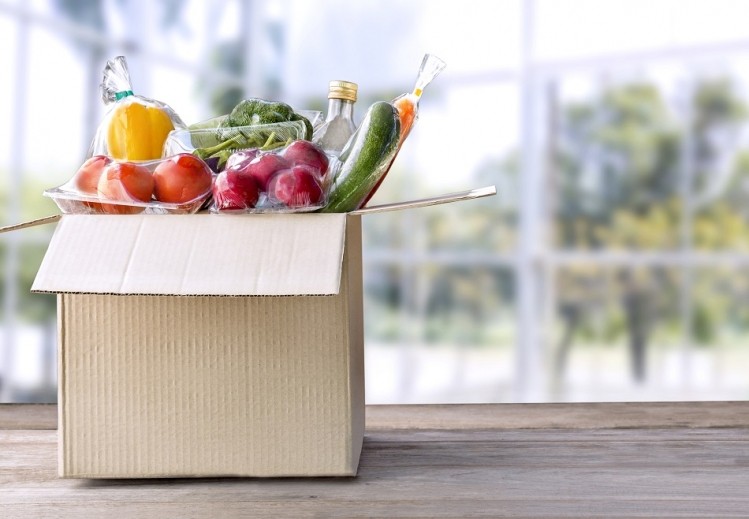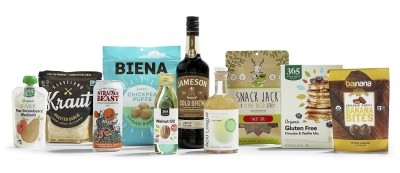Pandemic accelerates demand for fresh food and gives rise to the 'contemporary consumer'

According to the Produce Marketing Association, sales of fresh produce were up $4.5bn between January and August 2020 compared to the same period last year. In terms of consumer sentiment towards the category, Deloitte's Future of Fresh report found that nine out of 10 consumers said that fresh food makes them "happy," a rather unique finding when it comes to Deloitte's years of conducting consumer grocery shopping studies, noted Barb Renner, vice chairman and US consumer products leader for Deloitte
The report, conducted in July 2020 and based on survey responses from 2,000 US adults, found that while consumer shopping habits have been largely disrupted this year, fresh food sales remain an important growth driver for retailers and a priority for shoppers who are adapting their buying behaviors to ensure their household has more fresh food on hand.
The report looked at fresh food categories including produce, meat and seafood (but excluding dairy) and segmented respondents into conventional (60% of those surveyed) consumers who have a traditional approach to their fresh shopping at the grocery store, and contemporary (wealthier, more diverse, urban-dwelling) consumers who are more likely to shop online for groceries.
Deloitte found that contemporary consumers had a stronger commitment to the fresh food category overall.
Contemporary consumers, who made up 40% of the respondents, were more willing to pay a premium for fresh foods (6% higher than last year) and reported buying more fresh food between March and July of this year than conventional shoppers (50% vs. 27%, respectively).
Many are also embracing online shopping in larger numbers than they have before.
"They are now finding in-store shopping the most stressful and seeking fresh online. Historically, people have been uncomfortable with the store picker of fresh food; the trust wasn’t there, but now it is," Renner told FoodNavigator-USA, noting that more than two-thirds (68%) of contemporary consumers now trust their assigned in-store shoppers to select the best quality fresh items available.
Contemporary consumers are also twice as likely to show interest in subscription boxes (59% vs. 26% for conventional consumers), Renner noted.
Out-of-stock reactions & propensity to switch
When faced with out-of-stock items across fresh food categories, Deloitte found that contemporary consumers are less likely to go without and are more open to trying alternative products.
According to the report, contemporary consumers are much more likely to be satisfied with replacement items (64% vs. 36% of conventional consumers) making them candidates for being nudged into forming new shopping patterns and trying alternative items, noted Renner.
"When the product was out of stock, 52% of the time they replaced it with an alternative type of fresh food item (compared to 38% of conventional shoppers)," she said.
When encountering out-of-stock fresh food items, contemporary consumers were also far less likely to simply go without the fresh food item (17% vs. 34% of conventional shoppers).
In addition, Deloitte noted that contemporary consumers have a recalibrated definition of convenience which is less about time (i.e. quick meal prep and commute-related time savings) and more about stress-free availability.
Retailer opportunity
With consumers going longer between shopping trips, ensuring freshness at the time of purchase is a growing challenge for retailers.
To combat this, Deloitte recommends that retailers collaborate more closely with their supply chain partners, consider intermittent deliveries and smaller shipment sizes, and use analytics to ensure that the least amount of time passes before the consumer takes the product home.
Renner also suggests a period of SKU rationalization to focus on fewer items that retailers know will sell.
"A lot of companies have simplified the products they’re getting to market and have done some SKU rationalization. Instead of having 20 types of salad mixes, focus on some core ones," she said.
Retailers should also leverage their knowledge of their product assortment to actively guide consumers to food that will last the longest past the day of purchase.
"This includes suggesting fresh food items to be consumed now and others that will still be good in 'week number two.' The technology exists. If predictions are made accurately enough, one could imagine labels or signage indicating information such as 'six days of freshness strawberries' or '10-day bananas'," noted Deloitte.
'Keep moving forward'
As a guiding principle, Deloitte said, retailers should "keep moving forward" and identify ways to connect with consumers where they are today instead last-ditch efforts to lure them back into stores.
"The imperative should be to continue building the capabilities to connect with consumers in virtual settings. Whatever new models you wish to deploy, continue to invest in omnichannel access to better serve contemporary consumers," noted Deloitte.


















